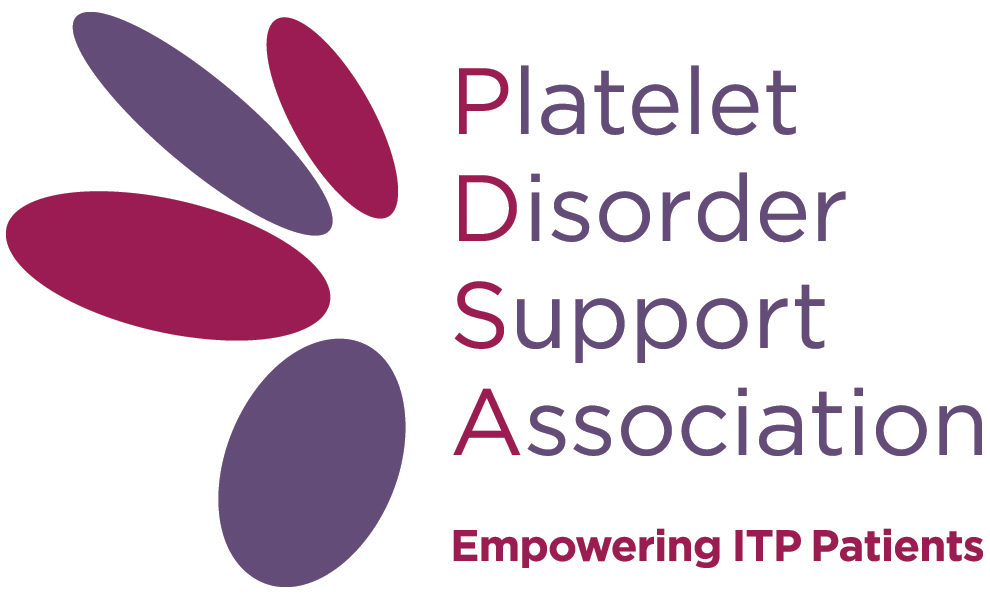HAYLEY'S ITP JOURNEY
 In December of 2011 I was diagnosed with ITP, immune thrombocytopenia. A blood disorder most often with no known cause often occurring after having a cold or other viral illness and your immune system has worked overtime to try to fight it off and mistakenly begins destroying your platelets which are needed to make your blood clot. In other cases your platelets can be destroyed by the spleen and sometimes the liver. A normal platelet count is 140,000-300,000. Mine at time of diagnosis was 5,000. This meant that I was at a high risk of internal bleeding that could be hard to stop even with medical intervention. Because there is no test to determine what the cause is or what treatment will work for any given person, treatment is often a process of trial and error once more common causes such as cancer have been eliminated. The first line of treatment for me, and most, was the corticosteroid, prednisone. A drug whose side effects are body and mind changing but works for most at suppressing the immune system and thus stopping the body’s ability to destroy the platelets. However, it is not a good drug for long term use. When my platelets began to drop as I tapered off of the prednisone, it was decided I would have my spleen removed. After my splenectomy I developed a life threatening blood clot in my portal vein that was treated in the hospital for 2 weeks as it was difficult to monitor keeping my platelets high enough that my blood would clot, yet being treated with i.v. blood thinners and monitored closely to attempt to dissolve the portal vein clot. It was then determined through further blood testing that I also had a blood disorder known as APS, antiphospholipid syndrome which means my immune system also attacks the normal proteins in my blood and causes clots to form. All of this occurred during the first 5 months of being diagnosed. These conditions, along with many other health issues that I’ve endured as side effects and symptoms of them, have cost me and my family lost time together while I’ve spent what has added up to months of time spent in hospitals and clinics for testing, procedures and treatments including, but not limited to chemotherapy even with the absence of cancer. I am currently lucky enough to have been in remission from ITP since April of 2013.
In December of 2011 I was diagnosed with ITP, immune thrombocytopenia. A blood disorder most often with no known cause often occurring after having a cold or other viral illness and your immune system has worked overtime to try to fight it off and mistakenly begins destroying your platelets which are needed to make your blood clot. In other cases your platelets can be destroyed by the spleen and sometimes the liver. A normal platelet count is 140,000-300,000. Mine at time of diagnosis was 5,000. This meant that I was at a high risk of internal bleeding that could be hard to stop even with medical intervention. Because there is no test to determine what the cause is or what treatment will work for any given person, treatment is often a process of trial and error once more common causes such as cancer have been eliminated. The first line of treatment for me, and most, was the corticosteroid, prednisone. A drug whose side effects are body and mind changing but works for most at suppressing the immune system and thus stopping the body’s ability to destroy the platelets. However, it is not a good drug for long term use. When my platelets began to drop as I tapered off of the prednisone, it was decided I would have my spleen removed. After my splenectomy I developed a life threatening blood clot in my portal vein that was treated in the hospital for 2 weeks as it was difficult to monitor keeping my platelets high enough that my blood would clot, yet being treated with i.v. blood thinners and monitored closely to attempt to dissolve the portal vein clot. It was then determined through further blood testing that I also had a blood disorder known as APS, antiphospholipid syndrome which means my immune system also attacks the normal proteins in my blood and causes clots to form. All of this occurred during the first 5 months of being diagnosed. These conditions, along with many other health issues that I’ve endured as side effects and symptoms of them, have cost me and my family lost time together while I’ve spent what has added up to months of time spent in hospitals and clinics for testing, procedures and treatments including, but not limited to chemotherapy even with the absence of cancer. I am currently lucky enough to have been in remission from ITP since April of 2013.

2015 brought both hope and challenges related to my ITP diagnosis. Thanks to the success of last years Hope for Hayley 5K I earned a membership status with the PDSA that helped send me to the annual PDSA conference in Nashville, Tennessee. I had the opportunity to meet a lot of great support people, other people with similar health issues and experts that were working to find a cure. Following that I was asked by the American Society of Hematology to join 1 other ITP patient on a panel with doctors who are experts in the area of ITP to rewrite patient guidelines for diagnosis and treatment. In December 2015 I went to Florida to meet with them and begin the planning process for the guideline. The day after I returned from Florida I went into the hospital in Ames for an esophageal bleed. They were unable to get the bleeding under control and I was rushed to the University of Iowa Hospital where I was intubated and placed in a medically induced coma. Thanks to the physicians and staff at U of I, as well as 17 units of blood products and an experimental procedure, I was able to recover.After that, I had monthly endoscopies for the first 3 months and now continue to have them every 3 months. My most recent was on February 20th, and my doctor said that the previously ruptured veins are finally flattening out and are the most healed that they've ever been!
While 2015 was the most challenging and life threatening year I've endured thus far in my life since being diagnosed with ITP, I am looking forward to the 3rd Annual Pump it Up for Platelet’s 5K Run/Walk and being able to give back to an organization that continues to work on finding better treatments for my condition. The connections I’ve made with PDSA staff, doctors and other patients have made a world of difference in my life.
PDSA is a 501 (c)3 organization.
Contributions are tax deductible to the extent of the law.
PDSA is eligible for corporate matching programs.
PDSA receives NO federal funding.



